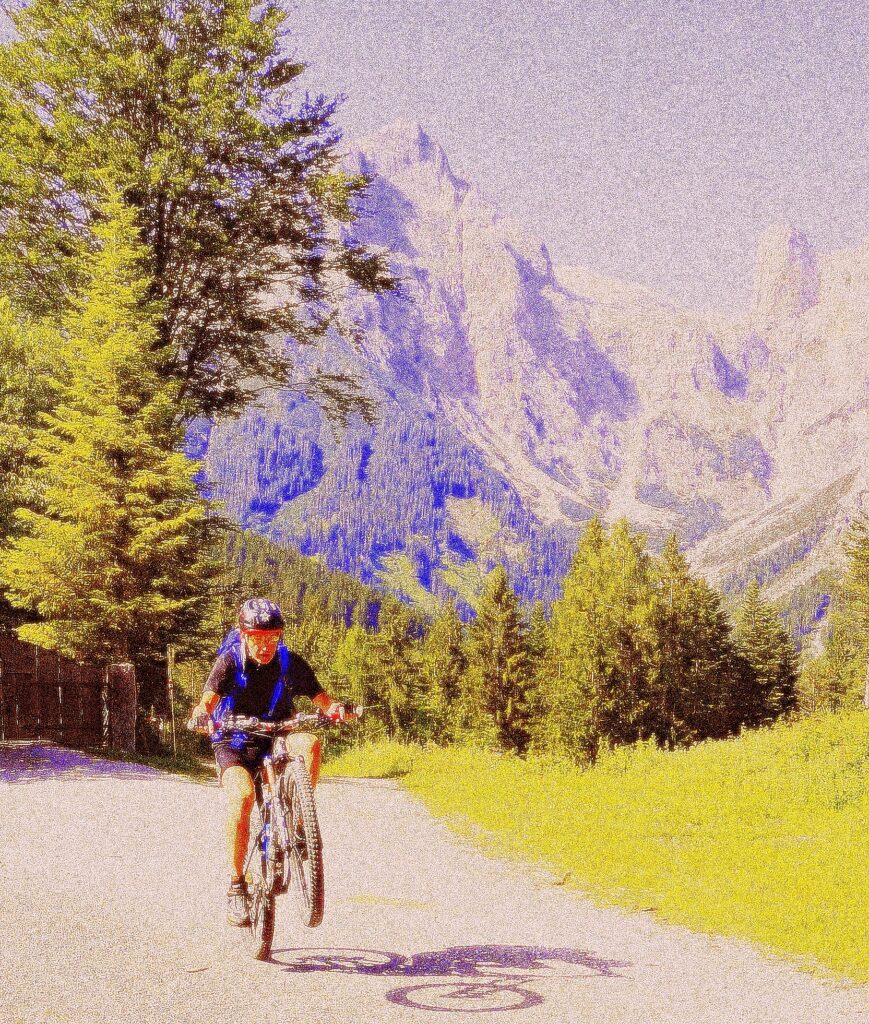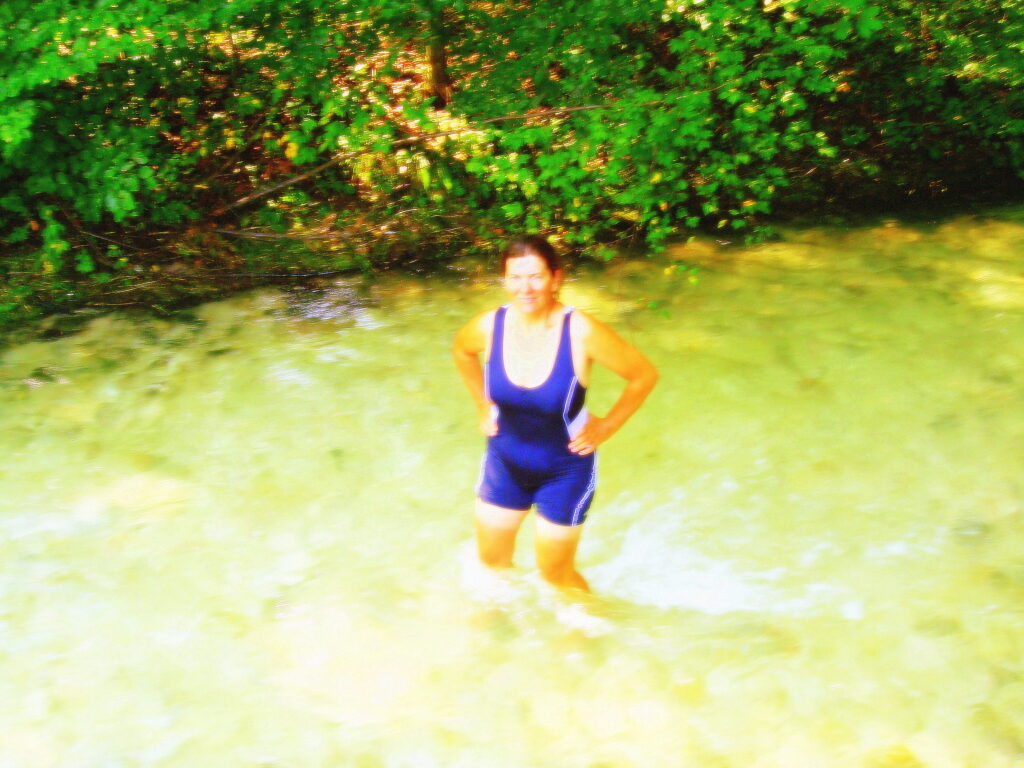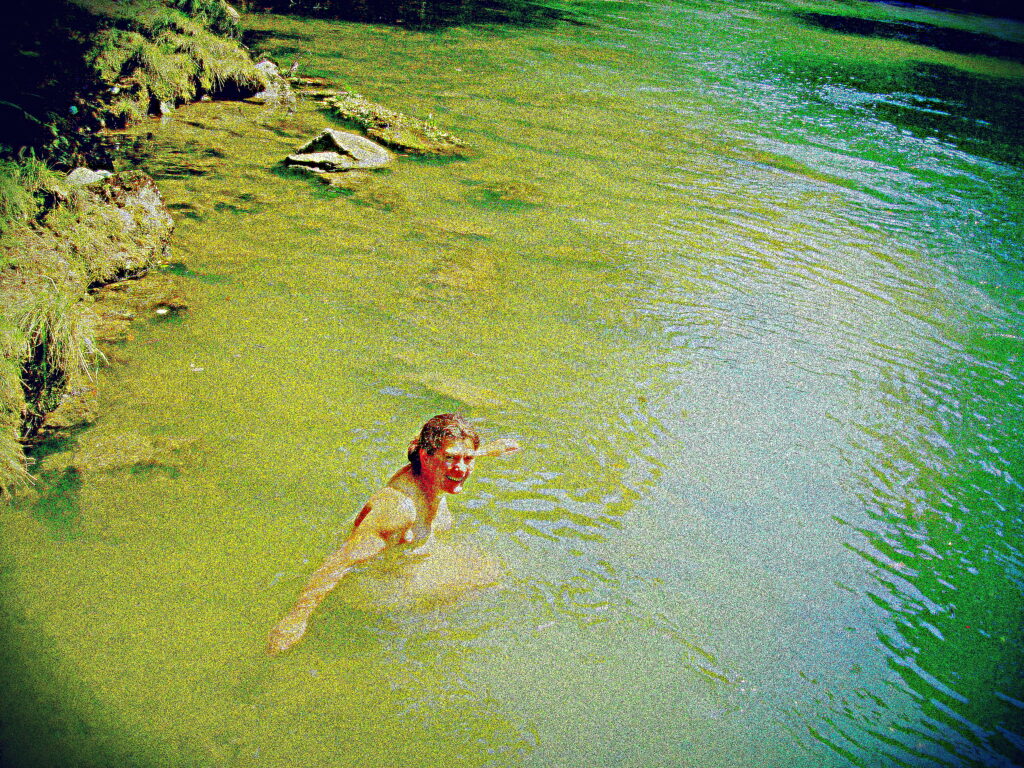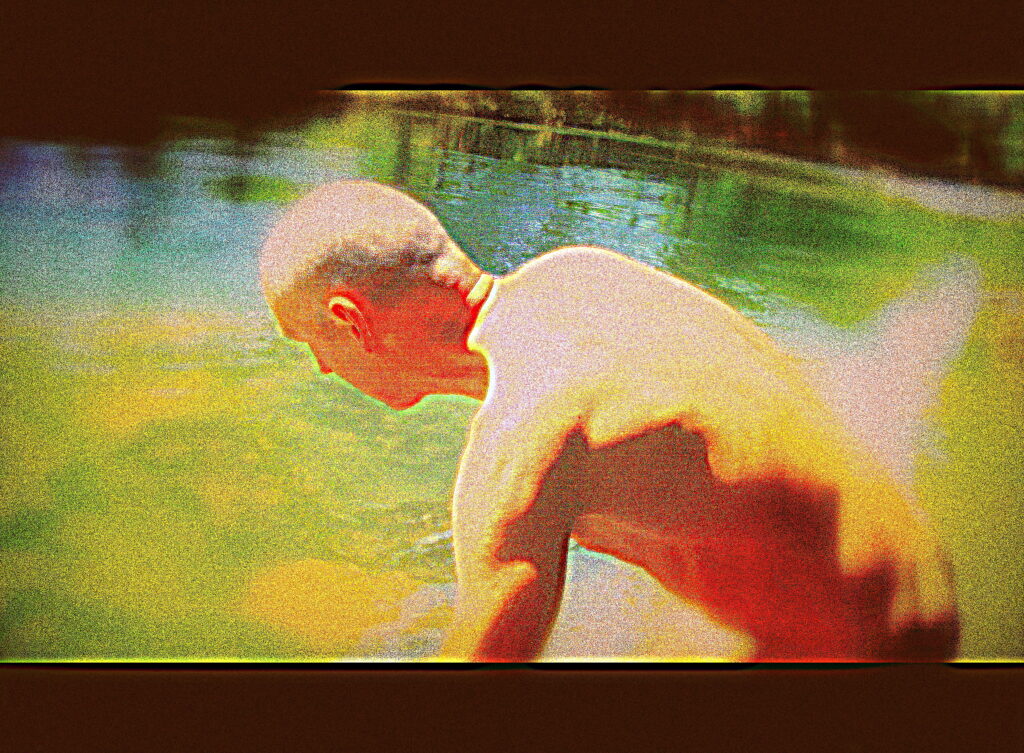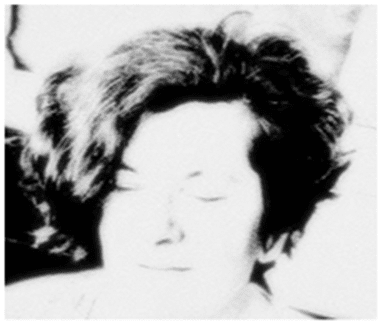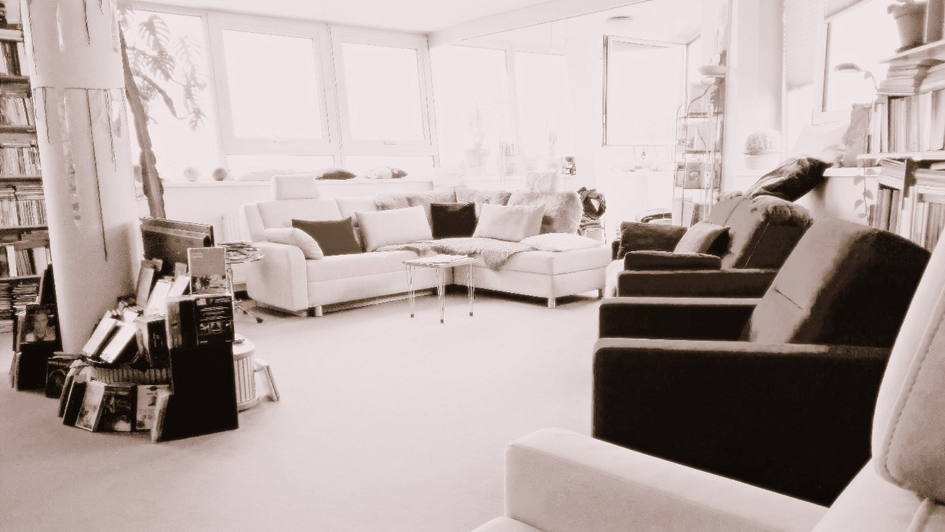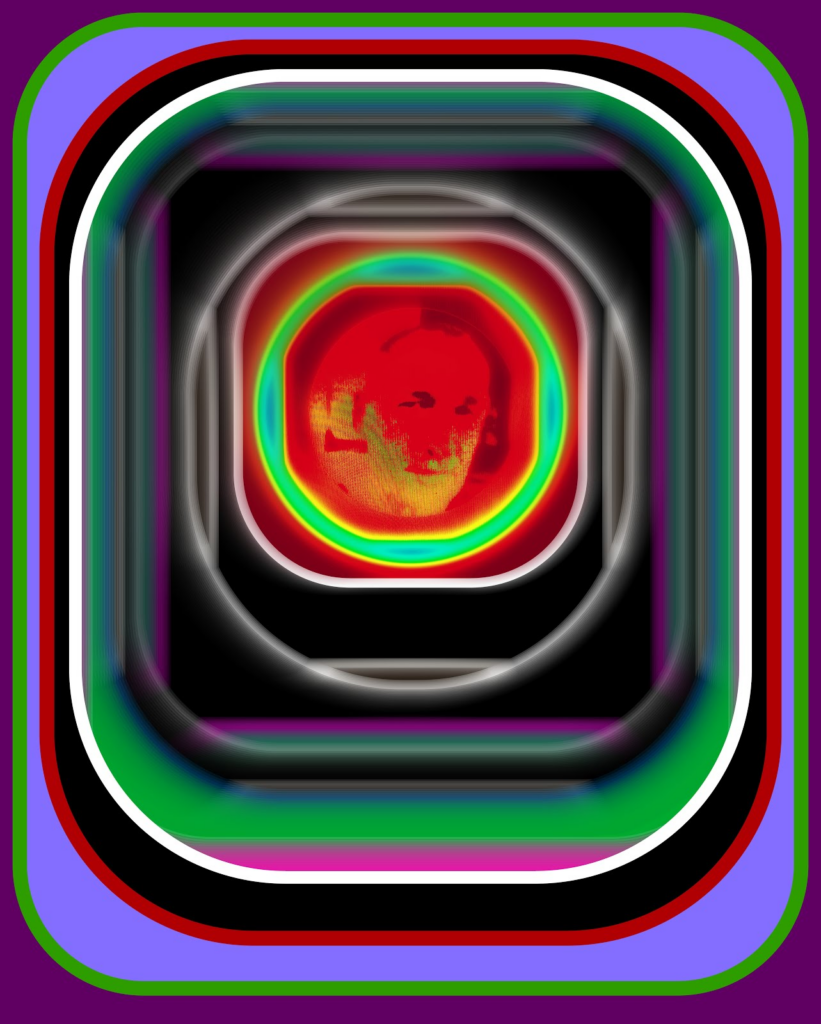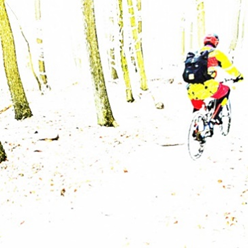Freedom / Freiheit (English/German)
Ein Experiment!
Zumindest der Versuch eines Protokolls eines Experiments, – aufgezeichnet von Gerhard Kaučić und Anna Lydia Huber:
Zwei Gruppen, ein Thema.
Eine aus München auf Deutsch und eine aus Bratislava auf Englisch.
Die Gesprächs- und Analysegrundlage bildet Kaučićs und Hubers Text
„The concept of freedom and its freedoms“
vom 13.03.2025 mit dem Url/Link:
Weiterführende Literatur als Gesprächsgrundlage dieses Experiments einer Grammatologischen Philosophischen Praxis (GPP) zweier voneinander unabhängiger Gruppen in 2 unterschiedlichen Sprachen:
Hannah Arendt: Die Freiheit, frei zu sein, Vita activa, Über die Revolution.
Immanuel Kant: Kritik der reinen Vernunft (transzendentale Freiheit) und Kritik der praktischen Vernunft (moralische Freiheit) plus Grundlegung zur Metaphysik der Sitten ( Verbindung von Freiheit, Autonomie und dem kategorischen Imperativ).
Jacques Derrida: Schurken. Zwei Essays über die Vernunft, Von der Gastfreundschaft.
Das Konzept der Freiheit und seine Freiheiten. Über das Konzept und die Verständlichkeit von Freiheit bei Gerhard Kaučić und Anna Lydia Huber ?
Grundgedanke: Freiheit existiert nur in realen Bedingungen
Kaučić und Huber verstehen Freiheit nicht als abstrakte metaphysische Eigenschaft.
Freiheit wird erst bedeutsam, wenn man sie in den tatsächlichen politischen, ökonomischen und sozialen Bedingungen betrachtet.
Freiheit ist nie absolut.
Sie ist immer situiert und begrenzt.
Sie muss sich in der Realität bewähren.
Demokratische, transparente und rechtsstaatliche Strukturen sind die Voraussetzung dafür, dass Freiheit überhaupt entstehen kann.
An experiment!
At least an attempt at a protocol of an experiment, recorded by Gerhard Kaučić and Anna Lydia Huber:
(partial translation into German or vice versa into English by GK & ALH)
Two groups, one topic.
One from Munich in German and one from Bratislava in English.
The basis for discussion and analysis is Gerhard Kaučić’s and Anna Lydia Huber’s text
“The concept of freedom and its freedoms”
dated March 13, 2025, with the URL/link: https://www.philosophischepraxiskaucicundhuber.at/2025/03/13/the-concept-of-freedom-and-its-freedoms/
Further reading as a basis for discussion of this experiment in Grammatological Philosophical Practice (GPP) by two independent groups in two different languages:
Hannah Arendt: The Freedom to Be Free, The Human Condition (Vita Activa), On Revolution.
Immanuel Kant: Critique of Pure Reason (transcendental freedom) and Critique of Practical Reason (moral freedom) plus Groundwork of the Metaphysics of Morals (connection between freedom, autonomy, and the categorical imperative).
Jacques Derrida: Rogues: Two Essays on Reason, Of Hospitality.
The concept of freedom and its liberties. On the concept and comprehensibility of freedom by Gerhard Kaučić and Anna Lydia Huber ?
A concise way to think about Gerhard Kaučić’s and Anna Lydia Huber’s idea of freedom is this:
they treat freedom not as an abstract metaphysical property (“free will”) but as something that only becomes meaningful within real political, economic, and constitutional conditions.
Freedom is never absolute—it is always situated, always constrained, and always something that must prove itself in lived reality.
Below you will find a clear, structured explanation of Kaučić and Huber’s position based on the text we mentioned.
1. Core Idea: Freedom Exists Only in Real Conditions
Kaučić and Huber argue that traditional philosophical debates about “free will” fail because they ignore the concrete conditions in which human beings actually live.
Freedom is not a metaphysical essence.
It is something that must be understood within political, economic, and social frameworks.
What we call “free will” is always shaped by these frameworks.
They emphasize that constitutional, transparent, democratic structures are what make freedom even partially possible.
2. Freedom as a Space of Action
According to them, individuals experience freedom as a subjective scope of action:
This scope is limited by economic circumstances.
It is also limited by our own “subjectively diverse reasonableness”—our biases, fears, and internal obstacles.
Real freedom requires constant effort to overcome these internal and external barriers.
Freedom is therefore not a state but a practice.
3. Kant and the Demand for Objective Reality
They invoke Kant to argue that freedom must prove itself in objective reality:
Freedom is not meaningful unless it can be enacted.
Philosophy itself presupposes freedom—without it, thinking collapses.
Thus, freedom is both a precondition and a task.
4. Democracy as the Condition for Free Philosophy
They draw on Derrida’s idea of a “democracy to come”:
A free philosophy requires a democracy in development, always improving.
Freedom is inseparable from democratic structures.
Literature, art, science, and quality journalism also depend on this democratic space.
Freedom is therefore collective, not merely individual.
5. Philosophical Practice as a Way to Navigate Freedom
In their broader work, Kaučić and Huber describe Grammatological Philosophical Practice as:
A method for overcoming fear.
A way to analyze and deconstruct power, authority, and ideology.
A communicative effort to resist domination and open spaces for freedom and emancipation.
This practice is part of their understanding of how freedom can be lived and expanded.
6. What “the freedoms/liberties” mean
The plural—freedoms—signals that:
Freedom is not one thing but many overlapping dimensions.
Political freedom, economic freedom, communicative freedom, artistic freedom, and personal autonomy all interact.
These freedoms can support or undermine one another depending on the conditions.
Freedom is therefore a constellation, not a single concept.
7. Comprehensibility of Freedom
They argue that freedom becomes comprehensible only when:
It is grounded in real-world structures.
It is understood as a dynamic process.
It is seen as something that must be continually defended and enacted.
Freedom is not a mystical enigma. Nor is it a gift. Freedom is not a mystery—it is a practical, lived, and political phenomenon.
Freedom is not a metaphysical mystery, but a practical, lived, and political phenomenon as desire.
The eternal dream of free and unrestricted movement in space.
Personal. Social. Political. Spatial. Economic. Intellectual. Communicative. Informative. Societal. Libidinal. Freedom of the press. Artistic. Performative. Gender.
In German:
Ein Experiment!
Zumindest der Versuch eines Protokolls eines Experiments, – aufgezeichnet von Gerhard Kaučić und Anna Lydia Huber:
Zwei Gruppen, ein Thema.
Eine aus München auf Deutsch und eine aus Bratislava auf Englisch.
Die Gesprächs- und Analysegrundlage bildet Kaučićs und Hubers Text
„The concept of freedom and its freedoms“
vom 13.03.2025 mit dem Url/Link: https://www.philosophischepraxiskaucicundhuber.at/2025/03/13/the-concept-of-freedom-and-its-freedoms/
Weiterführende Literatur als Gesprächsgrundlage dieses Experiments einer Grammatologischen Philosophischen Praxis (GPP) zweier voneinander unabhängiger Gruppen in 2 unterschiedlichen Sprachen:
Hannah Arendt: Die Freiheit, frei zu sein, Vita activa, Über die Revolution.
Immanuel Kant: Kritik der reinen Vernunft (transzendentale Freiheit) und Kritik der praktischen Vernunft (moralische Freiheit) plus Grundlegung zur Metaphysik der Sitten ( Verbindung von Freiheit, Autonomie und dem kategorischen Imperativ).
Jacques Derrida: Schurken. Zwei Essays über die Vernunft, Von der Gastfreundschaft.
Das Konzept der Freiheit und seine Freiheiten. Über das Konzept und die Verständlichkeit von Freiheit bei Gerhard Kaučić und Anna Lydia Huber ?
1. Grundgedanke: Freiheit existiert nur in realen Bedingungen
Kaučić und Huber verstehen Freiheit nicht als abstrakte metaphysische Eigenschaft.
Freiheit wird erst bedeutsam, wenn man sie in den tatsächlichen politischen, ökonomischen und sozialen Bedingungen betrachtet.
Freiheit ist nie absolut.
Sie ist immer situiert und begrenzt.
Sie muss sich in der Realität bewähren.
Demokratische, transparente und rechtsstaatliche Strukturen sind die Voraussetzung dafür, dass Freiheit überhaupt entstehen kann.
2. Freiheit als Handlungsspielraum
Für Individuen zeigt sich Freiheit als subjektiver Handlungsspielraum:
Er wird durch ökonomische Bedingungen eingeschränkt.
Er wird durch unsere eigenen inneren Grenzen beeinflusst (Ängste, Vorurteile, Gewohnheiten).
Freiheit ist daher kein Zustand, sondern ein ständiger Prozess des Überwindens.
Freiheit ist etwas, das man praktiziert, nicht etwas, das man einfach besitzt.
3. Kant: Freiheit muss sich in der Wirklichkeit zeigen
Kaučić und Huber greifen Kant auf, um zu betonen:
Freiheit ist nur lebbar/sinnvoll, wenn sie wirklich ausgeübt werden kann.
Denken selbst setzt Freiheit voraus.
Freiheit ist sowohl Voraussetzung als auch Aufgabe.
Damit wird Freiheit zu einem Prüfstein: Sie muss sich im Handeln bewähren.
4. Demokratie als Bedingung freier Philosophie
Mit Bezug auf Derridas Idee einer „Demokratie im Kommen“ argumentieren sie:
Freies Denken braucht eine offene, sich entwickelnde Demokratie.
Freiheit ist immer auch kollektiv.
Kunst, Wissenschaft, Qualitäts-Journalismus und Philosophie können nur in einem demokratischen Raum wirklich frei sein.
Freiheit ist also nicht nur individuell, sondern ein gesellschaftliches Projekt.
5. Philosophische Praxis als Weg zur Freiheit
In ihrer Grammatologischen Philosophischen Praxis (GPP) betonen Kaučić und Huber:
Philosophie hilft Angst zu überwinden.
Sie dient dazu, Machtstrukturen sichtbar zu machen und zu dekonstruieren.
Sie schafft Kommunikationsräume, in denen Freiheit wachsen kann. Eine kommunikative Anstrengung, um sich der Herrschaft zu widersetzen und Räume für Freiheit und Emanzipation zu öffnen.
Philosophieren ist für sie ein Werkzeug der Befreiung, der Emanzipation.
6. Warum sie von „Freiheiten“ sprechen
Der Plural — Freiheiten — zeigt:
Freiheit besteht aus vielen Dimensionen.
Politische, ökonomische, kommunikative, künstlerische und persönliche Freiheiten überlagern sich.
Diese Freiheiten können einander stärken oder behindern.
Freiheit ist also ein Geflecht, kein monolithischer Begriff.
7. Die Verständlichkeit von Freiheit
Freiheit wird verständlich, wenn man sie:
in reale Bedingungen einbettet,
als dynamischen Prozess begreift,
als etwas versteht, das ständig verteidigt und gestaltet werden muss.
Freiheit ist kein mystisches Enigma. Und auch kein Geschenk. Freiheit ist kein metaphysisches Rätsel, sondern ein praktisches, gelebtes und politisches Phänomen als Begehren.
Der ewige Traum von freier und freizügiger Bewegung im Raum.
Persönlich. Sozial. Politisch. Räumlich. Ökonomisch. Gedanklich. Kommunikativ. Informativ. Gesellschaftlich. Libidinal. Pressefreiheitlich. Künstlerisch. Performativ. Geschlechtlich.
Des weiteren stellten wir alle uns dem Versuch einer Vergleichsanalyse in unserer GPP:
1) Wir wollen die 2 Gruppen von je drei Leuten a) auf Deutsch aus einem Uni-Seminar in München und eines b) auf Englisch in Bratislava die Kaučić – Hubersche Position mit Immanuel Kant, Hannah Arendt und Jacques Derrida vergleichen lassen
2) das Ganze in Fragen für ein Seminar verwandeln
und
3) eine kritische Analyse der Argumentation zu formulieren versuchen.
1. Immanuel Kant
Bezug zu Kaučić & Huber:
Kant versteht Freiheit als Bedingung der Moral, als Fähigkeit, nach selbstgegebenen Vernunftgesetzen zu handeln.
Kaučić & Huber stimmen zu, dass Freiheit sich in der Realität bewähren muss, verschieben den Fokus aber auf politische, soziale und ökonomische Bedingungen und auf den Fokus des psychoanalytisch gedachten sogenannten Begehrens.
Bei Kant ist Freiheit vor allem innerlich (Autonomie).
Bei Kaučić & Huber ist Freiheit diagnostiziert als Begehren, aber auch situiert und abhängig von demokratischen Strukturen.
Zentraler Unterschied:
Kant gründet Freiheit in der Vernunft, Kaučić & Huber in politischer Praxis, Begehrenskultur und gesellschaftlichen Bedingungen.
2. Hannah Arendt
Bezug zu Kaučić & Huber:
Arendt definiert Freiheit als Handeln im öffentlichen Raum, als Fähigkeit, Neues zu beginnen.
Kaučić & Huber teilen diese Betonung der politischen Freiheit, erweitern sie aber um ökonomische Einschränkungen, subjektive Ängste und die Psychostruktur des Begehrens.
Arendt betont Pluralität und Handlung, Kaučić & Huber sprechen von pluralen Freiheiten in Strukturen.
Zentraler Unterschied:
Arendt betont das politische Handeln, Kaučić & Huber die strukturellen (polit-ökonomisch und subjektorientiert singulär) und die singulären Voraussetzungen dafür.
3. Jacques Derrida
Bezug zu Kaučić & Huber:
Derridas „Demokratie im Kommen“ ist ein offenes, unvollendetes Projekt.
[[ kleiner Einschub dazu / zum besseren Verständnis von Derrida und Demokratiephilosophie:
Müssen wir, können wir, dürfen wir an die Idee der Demokratie Zweifel setzen ?!?
Und an der Demokratiefähigkeit !?!
An der Demokratiemöglichkeit ?! Der Demokratizität !?
Am Demokratischen?!
An der Frage der kommenden Demokratie !?
Warum bezeichnet Jacques Derrida die Demokratie als kommende, – Demokratie !?
Zitat:
Jacques Derrida: „Aufgrund des Geheimnisses möchte ich die Frage der Demokratie abermals aufnehmen, da es ein Konzept der Politik und der Demokratie als Offenheit gibt – wir sind alle gleich und der öffentliche Bereich steht uns allen offen -, was dazu tendiert, das Geheimnis zu negieren, auszustreichen oder zu verbieten;
in jedem Fall tendiert es dazu, das Recht aufs Geheimnis auf den privaten Bereich zu beschränken und damit eine Kultur der Privatsphäre zu etablieren. (Ich denke, das ist die vorherrschende und hegemoniale Tendenz in der Geschichte der Politik des Westens.) …
ich habe versucht, gegen eine derartige Interpretation der Demokratie eine Erfahrung des Geheimnisses und der Singularität zu denken, der gegenüber der öffentliche Bereich keine Rechte und keine Macht in Anschlag bringen kann.“
( Jacques Derrida: Bemerkungen zu Dekonstruktion und Pragmatismus, – in: Ch. Mouffe (Hg.): Dekonstruktion und Pragmatismus. Demokratie, Wahrheit und Vernunft. Wien 1999 (Passagen Verlag), S. 179. )
Wir bekräftigen:
Jacques Derrida bezeichnet die kommende Demokratie als eben solche aufgrund des Geheimnisses (!) als Erfahrung des Singulären (!), aus der das Politische nur erwachsen kann, – und zwar erwachsen in seiner Offenheit. Offen ist kommend.
Die Erfahrung ist das, was das Subjekt über ein bisher Erfahrbares hinausführt, – quasi entgegen allen und als Überraschung aller Erwartungen, Hoffnungen, Begehrlichkeiten. Das was den Horizont der Wahrnehmung zu übersteigen vermag.
Das Geheimnis haftet an einer solchen „Übersteigung“ von etwas. Das Geheimnis könnte das unmöglich Scheinende, ja das Unmögliche sein, – das Politische werden, als die Erfahrung eines Unmöglichen.
Das Unmögliche ist das Singuläre!
(vgl. Derrida, Politik der Freundschaft, S. 55 und Die unbedingte Universität, S. 73)
Das Politische erwächst aus der Erfahrung des Singulären aufgrund des Geheimnisses, das die Erfahrung des Singulären zur Voraussetzung hat oder besser noch, diesem anhaftet, als Präsenz der Absenz bleibend. Eben die kommende Demokratie, die immer erst ankommende Demokratie.
Dies ist der Initialeffekt des Denkens der Singularität und also des Geheimnisses dafür, warum zum Beispiel in der Literatur alles gesagt werden kann und weswegen Literatur mit Demokratie verantwortlich (!) zusammenzudenken ist.
Warum bezeichnet Derrida die Demokratie als „kommend“?
Derridas Ausdruck „die kommende Demokratie“ (la démocratie à venir) ist von zentraler Bedeutung.
Er signalisiert, dass Demokratie niemals vollständig erreicht, niemals vollständig präsent ist. Sie befindet sich immer im Werden, wird immer aufgeschoben, wird immer von ihrer eigenen Unmöglichkeit heimgesucht.
Dieses „Kommen“ ist keine zeitliche Verzögerung, sondern ein strukturelles Merkmal: Demokratie ist der Name für ein Versprechen, das niemals erfüllt werden kann, sondern endlos bekräftigt werden muss.
Diese Idee wurzelt in Derridas Dekonstruktion von Präsenz und Identität. Demokratie ist für ihn kein festes Regime, sondern ein Aufruf, eine Forderung, ein Versprechen, das uns in Bewegung hält, zum Hinterfragen anregt und unsere politischen Vorstellungen verändert.
„Und das Geheimnis ist nichts, was ich in mir verberge; es ist nicht Ich. Das Geheimnis ist nicht das Geheimnis der Vorstellung, die man im eigenen Kopf einschließt und von der man beschließt, sie niemandem zu sagen, es ist eher ein Geheimnis, das der Erfahrung des Singulären koexistent ist. Das Geheimnis kann nicht auf den öffentlichen Bereich reduziert werden – trotzdem nenne ich es nicht privat -, es kann auch nicht auf die Veröffentlichung oder das Politische reduziert werden, zur selben Zeit liegt dieses Geheimnis dem zugrunde, von dem aus der öffentliche Bereich und der Bereich des Politischen zu sein, und offen zu sein, vermag.“
( Jacques Derrida: ebda., Bemerkungen zu Dekonstruktion und Pragmatismus, – in: Ch. Mouffe (Hg.): Dekonstruktion und Pragmatismus. Demokratie, Wahrheit und Vernunft. Wien 1999 (Passagen Verlag), S. 178f. )
In der platonischen Ideenlehre ist die Idee des Guten das oberste Prinzip. Ein nicht einfach zu erfassendes Prinzip! Umgelegt auf die heutige Politik möchte ich (GK&ALH) dieses „Prinzip“(!) anwenden auf die modernen Menschenrechtsformulierungen, nach denen sich heutige Politik und PolitikerInnen zu richten hätten, – also auf das, was gut und richtig ist für alle Menschen auf diesem Globus, das sogenannte „planetarische Prinzip“ (vgl. Gayatri Chakravorty Spivak) den „Anderen“ zu denken, im Zeichen der Alterität zu denken, – …
[ „Die Spur, in der sich das Verhältnis zum Anderen abzeichnet, …“ „Es gilt, die Spur vor dem Seienden zu denken.“ (J. Derrida, op.cit., Grammatologie, S. 82)
„The trace must be thought before the entity.“ (J. Derrida, op. cit., of Grammatology, p. 47)
„ Il faut penser la trace avant l’étant.“ ( Jacques Derrida, op. cit., DE LA GRAMMATOLOGIE, p. 69 ) ]
… – ja vom Imperativ(!), das Subjekt als planetarisch zu denken, – auch und besonders auf die großen Herausforderungen der Politik im 21. Jahrhundert gerichtet gedacht.
( cf. Gayatri Chakravorty Spivak: Imperative zur Neuerfindung des Planeten – Imperatives to Re-Imagine the Planet (hg. v. Willi Goetschel engl./dt.). Wien 2013, 2. Aufl., Passagen Verlag, S. 49vv.ff. und Charles Taylor: Multiculturalism and the „Politics of Recognition“. Princeton 1994, p. 28 )
Eine Demokratie im Werden (sagten wir oben und nicht nur auf nationalstaatlichem Boden, vgl. Kant, Zum ewigen Frieden) in den überstaatlichen Beziehungen, Rechtsverhältnissen und Institutionen, – eine Demokratie, die als kommende noch kaum bis gar nicht begonnen haben dürfte. Das ist das Thema von Liebe und Haß, Frieden und Krieg, Gemeinsames und Einsames, ein Thema der Möglichkeit, Wahrscheinlichkeit und Unmöglichkeit.
Derridas Denken lädt uns dazu ein, Demokratie nicht als ein zu verteidigendes System zu betrachten, sondern als eine Frage, die gelebt werden muss. Es fordert uns auf, wachsam gegenüber dem Dogmatismus jeder politischen Ordnung zu sein, auch der demokratischen.
Es erinnert uns daran, dass die demokratischste Geste darin besteht, die Frage der Demokratie offen zu halten – der Versuchung zu widerstehen, sie abzuschließen, sie ein für alle Mal zu definieren.
Die Demokratie als philosophischer Begriff, die immerwährend im Kommen bleibt (vgl. Teaser in unserem Blogspot-Blog 2014 ff.). ]]
Kaučić & Huber übernehmen diese Idee: Freiheit ist nie abgeschlossen.
Beide betonen Dekonstruktion von Macht und die Notwendigkeit transparenter demokratischer Prozesse.
Derrida fokussiert Unbestimmtheit, Kaučić & Huber praktische grammatologisch-philosophische Arbeit.
Zentraler Unterschied:
Derridas Freiheit ist aporetisch und konzeptuell, Kaučić & Huber bestehen auf praktischer, institutioneller und persönlicher Freiheit.
In English:
Furthermore, we all attempted a comparative analysis in our GPP:
We want the two groups of three people each a) in German from a university seminar in Munich and b) in English in Bratislava to compare the position of Kaučić & Huber with Immanuel Kant, Hannah Arendt, and Jacques Derrida.
I. COMPARISON WITH KANT, ARENDT, AND DERRIDA
1. Immanuel Kant
Relation to Kaučić & Huber:
Kant sees freedom as the condition of morality: the ability to act according to self-given rational laws.
Kaučić & Huber agree that freedom must prove itself in reality, but they shift the focus from moral autonomy to political, social, and economic conditions and on the focus of psychoanalytically conceived so-called desire.
For Kant, freedom is primarily internal (autonomy).
For Kaučić & Huber, freedom is diagnosed as desire, but also situated and dependent on democratic structures.
Key difference:
Kant bases freedom on reason, Kaučić & Huber on political practice, the culture of desire, and social conditions.
2. Hannah Arendt
Relation to Kaučić & Huber:
Arendt defines freedom as action in the public sphere, the ability to begin something new.
Kaučić & Huber share this emphasis on political freedom, but extend it to include economic constraints, subjective fears, and the psychological structure of desire.
Arendt sees freedom as plurality and action. Kaučić & Huber see it as plural freedoms embedded in structures.
Key difference:
Arendt emphasizes political action, while Kaučić & Huber emphasize structural conditions that make action possible.
3. Jacques Derrida
Relation to Kaučić & Huber:
Derrida’s “democracy to come” is an open, unfinished project.
[[ A brief aside for a better understanding of Derrida and democratic philosophy:
Must we, can we, are we allowed to question the idea of democracy?
And the capacity for democracy? The possibility of democracy? Democracy itself?
The democratic? The question of the coming democracy?
Why does Jacques Derrida refer to democracy as coming, – democracy!?
Citation:
Jacques Derrida: „Because of secrecy, I would like to revisit the question of democracy, since there is a concept of politics and democracy as openness—we are all equal and the public sphere is open to all of us—which tends to negate, erase, or prohibit secrecy;
in any case, it tends to restrict the right to secrecy to the private sphere and thus establish a culture of privacy. (I think this is the dominant and hegemonic tendency in the history of Western politics.) …
I have tried to counter such an interpretation of democracy with an experience of secrecy and singularity, against which the public sphere can assert no rights and no power.“
(Jacques Derrida: Remarks on Deconstruction and Pragmatism, in: Ch. Mouffe (ed.): Deconstruction and Pragmatism. Democracy, Truth, and Reason. Vienna 1999 (Passagen Verlag), p. 179., german ed.)
A brief digression on our part:
1. Must we, can we, are we allowed to question democracy?
Derrida’s answer is a resounding yes—not only are we allowed, but we must. For Derrida, democracy is not a stable, self-evident system, but a site of constant contestation. To treat democracy as a finished project is to betray its very spirit. Questioning democracy is not anti-democratic; it is the condition of democracy’s survival and evolution.
2. The capacity for democracy? The possibility of democracy? Democracy itself? The democratic?
Derrida distinguishes between democracy (as a historical, institutional reality) and the democratic (as an infinite promise, an ideal that can never be fully realized).
The “capacity for democracy” refers to the conditions that make democracy possible—conditions that are always fragile, contested, and in need of renewal.
The “possibility of democracy” is the open-ended, future-oriented dimension of democracy: it is always to come (à venir), never fully present.
3. Why does Derrida refer to democracy as “coming”?
Derrida’s phrase “democracy to come” (la démocratie à venir) is central.
It signals that democracy is never fully achieved, never fully present. It is always in the process of becoming, always deferred, always haunted by its own impossibility.
This “coming” is not a temporal delay, but a structural feature: democracy is the name for a promise that can never be fulfilled, but must be endlessly reaffirmed.
This idea is rooted in Derrida’s deconstruction of presence and identity. Democracy, for him, is not a fixed regime, but a call, a demand, a promise that keeps us moving, questioning, and transforming our political imaginaries.
4. Secrecy and the Public Sphere
In the passage above, Derrida challenges the dominant Western conception of democracy as transparency, openness, and the eradication of secrecy.
He argues that this vision is not only impossible (since secrecy is inherent to human experience), but also dangerous—it risks becoming a new form of totalitarianism, where everything must be exposed, controlled, and made public.
Derrida insists on the right to secrecy as a condition of democracy. Secrecy is not just a private matter; it is the space where singularity, difference, and the unassimilable can resist the homogenizing forces of the public sphere.
For Derrida, a democracy that cannot tolerate secrecy is a democracy that cannot tolerate the other, the unknown, the unpredictable—it is a democracy that has forgotten its own promise.
5. The Question of the Coming Democracy
The “coming democracy” is not a future democracy, but democracy as the experience of the question itself.
It is the recognition that democracy is always in crisis, always incomplete, always to be reinvented. This is not a weakness, but its strength: democracy’s openness to its own impossibility is what keeps it alive.
Why does this matter?
Derrida’s thought invites us to see democracy not as a system to be defended, but as a question to be lived.
It calls us to be vigilant against the dogmatism of any political order, including democratic ones. It reminds us that the most democratic gesture is to keep the question of democracy open—to resist the temptation to close it off, to define it once and for all.
To reflect further:
How does Derrida’s vision of democracy as “to come” challenge or resonate with your own understanding of political life?
Do you see spaces in contemporary politics where the tension between openness and secrecy, between the public and the singular (in german: das Singuläre), is particularly acute? ]]
Kaučić & Huber adopt this idea: freedom is never complete, always in development.
Both stress deconstruction of power and the need for transparent democratic processes.
Derrida focuses on indeterminacy; Kaučić & Huber focus on practical philosophical work.
Key difference:
Derrida’s freedom is aporetic and conceptual, while Kaučić & Huber insist on practical, lived, institutional freedom.
II. SEMINAR QUESTIONS
English:
How do Kaučić & Huber redefine freedom compared to classical metaphysical accounts?
In what ways does Kant’s concept of autonomy differ from their situated understanding of freedom?
Can freedom exist without democratic structures, according to the authors?
How does Arendt’s idea of political action illuminate or challenge their view?
What does Derrida’s “democracy to come” add to the discussion of freedom?
Are “freedoms” (plural) more useful than “freedom” (singular)?
How do economic constraints shape or limit freedom in contemporary societies?
Is philosophical practice itself a form of political action?
Deutsch:
Wie definieren Kaučić & Huber Freiheit neu im Vergleich zu klassischen metaphysischen Ansätzen?
Worin unterscheidet sich Kants Autonomiebegriff von ihrem situierten Freiheitsverständnis?
Kann Freiheit ohne demokratische Strukturen existieren?
Wie erhellt oder hinterfragt Arendts Begriff des politischen Handelns ihre Position?
Was trägt Derridas „Demokratie im Kommen“ zur Freiheitsdebatte bei?
Sind „Freiheiten“ (Plural) hilfreicher als „Freiheit“ (Singular)?
Wie formen ökonomische Bedingungen die Freiheit in heutigen Gesellschaften?
Ist philosophische Praxis selbst eine Form politischen Handelns?
III. CRITICAL ANALYSIS
English:
Strengths
Concrete grounding: They avoid abstract metaphysics and focus on real political and economic conditions.
Pluralistic approach: Recognizing multiple freedoms reflects contemporary complexity.
Integration of practice: Philosophy becomes a tool for empowerment, not just theory.
Democratic emphasis: They highlight the fragility and necessity of democratic structures.
Weaknesses / Points of critique
Underestimation of inner autonomy: By emphasizing structures, they risk downplaying Kantian moral agency.
Potential vagueness: “Plural freedoms” can become conceptually diffuse. (Really? Seriously?! Are you serious?)
Dependence on democracy: Their model may struggle to explain freedom (!) in non-democratic contexts (!?).
Limited engagement with existential freedom: Thinkers like Sartre or Kierkegaard are absent, though relevant (?! missing or unwanted ?!).
Overall assessment
Their concept is powerful for political philosophy and civic practice, but less suited for metaphysical or existential accounts of freedom. ( !?!? )
(Metaphysics contemporary?! Intellectualism expands!?)
P.s.:
We, Gerhard Kaučić and Anna Lydia Huber, do not share all of the views or the “results” of the two seminar groups recorded here. We merely moderated, translated where necessary, took the minutes of the meeting, and were responsible for the final editing!
Under our strict guidance through the (to put it mildly!) challenging texts and trains of thought (the long and laborious preparation time should also be mentioned here!), we achieved an intellectually high-quality team structure in both groups with many very interesting, even exciting questions and attempts at answers, which improved greatly in their sharpness of thought from hour to hour and subsequently led to very similar work results, so that Anna and I would like to speak of a more precisely defined and determinable approximation of truth.
I think I can say that we all worked very hard and were very satisfied with the results (especially with the various complex reading and discussion processes).
It was a wonderful example of intelligent and respectful collaboration. Warm regards to you all, and we hope to see you again in the not too distant future.
Thank you, and a special thank you to Anna Lydia!
Vienna, Austria, Europe, January 29, 2026
Deutsch:
Stärken
Konkrete Verankerung: Sie vermeiden abstrakte Metaphysik und fokussieren reale politische und ökonomische Bedingungen.
Pluralistischer Ansatz: Die Anerkennung mehrerer Freiheiten entspricht der gesellschaftlichen Komplexität.
Praxisorientierung: Philosophie wird zum Werkzeug der Befreiung.
Demokratiebezug: Sie betonen die Verletzlichkeit und Notwendigkeit demokratischer Strukturen.
Schwächen / Kritikpunkte (?)
Unterschätzung innerer Autonomie: Durch den Fokus auf Strukturen wird die kantische moralische Selbstbestimmung abgeschwächt.
Begriffliche Unschärfe: „Freiheiten“ kann theoretisch ausfransen. (tatsächlich? wirklich?! ernsthaft?)
Demokratieabhängigkeit: Ihr Modell erklärt Freiheit (!) in nicht-demokratischen (!?) Kontexten nur schwer (!)?).
Fehlende (?! fehlend oder unerwünscht ?!) existenzialistische Perspektive: Sartre oder Kierkegaard fehlen, obwohl sie relevant wären.
Gesamturteil
Ein starkes politisch-philosophisches Freiheitskonzept, aber weniger geeignet für metaphysische oder existenzialistische Fragestellungen.
( !?!? )
( Metaphysik zeitgemäß ?! Intellektualismus expandiert !?)
P.s.:
Wir, Gerhard Kaučić und Anna Lydia Huber, teilen nicht in jedem Punkt die Anschauungen bzw die hier protokollierten „Ergebnisse“ der beiden Seminargruppen. Wir haben bloß moderiert, fallweise übersetzt, das Meeting – Protokoll geführt und hatten die Endredaktion übernommen!
Unter unserer strengen Führung durch die (harmlos formuliert!) nicht einfachen Texte und Gedankengänge (auch die lange und aufwendige Vorbereitungszeit soll hier Erwähnung finden!) erzielten wir ein intellektuell hochwertiges Teamgefüge in beiden Gruppen mit vielen sehr interessanten, ja spannenden Fragen und Antwortversuchen, die sich von Stunde zu Stunde in ihrer Gedankenschärfe stark verbesserten und in der Folge in einander sehr ähnelnden Arbeits-Ergebnissen mündeten, sodaß wir, Anna und ich, von einer näher bestimmten und bestimmbaren Wahrheitsannäherung sprechen möchten.
Ich glaube, ich kann sagen, dass wir alle sehr hart gearbeitet haben und mit den Ergebnissen (besonders mit den divers aufwendigen Lese- und Gesprächsprozessen) sehr zufrieden waren. Es war ein wunderbares Beispiel für intelligente und respektvolle Zusammenarbeit.
Herzliche Grüße an Sie alle, und wir hoffen, Sie in nicht allzu ferner Zukunft wiederzusehen.
Ich danke Ihnen und besonders gern auch Anna Lydia!
Wien, Österreich, Europa, 29.01.2026
Gerhard Kaučić (geb. 1959) ist ein österreichischer Philosoph, Schriftsteller und Begründer der „Grammatologischen Philosophischen Praxis“ (GPP) in Wien (seit 1989).
Sein Werk ist geprägt von Dekonstruktion, sprachanalytischer Philosophie und praktischer Philosophie.
Kaucic studierte vergleichende Literaturwissenschaft, Geschichtswissenschaft, Philosophie und Linguistik in Salzburg und Paris.
Er arbeitet an der Schnittstelle von Philosophie, Psychoanalyse, Queer-Theorie und Feminismus.
Seine Grammatologische Philosophische Praxis (GPP) versteht er als Intervention in gesellschaftliche Diskurse, etwa zu Themen wie Demokratietheorie, Tierphilosophie, Gewalt, Identität und Sprache.
Gerhard Kaučić publiziert auch unter dem gemeinsamen Pseudonym „Gerhard Anna Cončić-Kaučić“ mit Anna Lydia Huber. Seine Schriften befassen sich mit der Inkommunikabilität, dem Ende des Kommunizierbaren und der Dekonstruktion großer Begriffe wie Freiheit, Menschenrechte und Demokratie.
Mehr siehe:
https://scholar.google.at/citations?user=wNUSN64AAAAJ&hl=de
Anna Lydia Huber (geb. 1959) ist eine österreichische Schriftstellerin und Philosophin der Wiener Postmoderne.
Sie arbeitet eng mit Gerhard Kaučić zusammen, publiziert gemeinsam mit ihm und teilt seine philosophischen und literarischen Interessen. Huber ist Mitbegründerin der „Grammatologischen Philosophischen Praxis“ (GPP) und Mitautorin der Zeitschrift „Die Grüne F Abyss“.
Ihr Werk ist geprägt von postmoderner Literatur, Dekonstruktion und der Auseinandersetzung mit Sprache, Schrift und gesellschaftlichen Machtstrukturen.
Zusammen mit Kaučić entwickelt sie eine Philosophie, die sich als „Erbarmen der Philosophie“ versteht und sich gegen Onto-Theo-Logozentrismen wendet.
Huber und Kaučić leben und arbeiten in Wien und sind bekannt für ihre interdisziplinäre und politisch engagierte Herangehensweise.
Beide stehen für eine Philosophie, die sich als lebendige Praxis versteht und sich in gesellschaftliche Debatten einmischt – sei es durch Schriften, Vorträge oder künstlerische Interventionen. Ihr gemeinsames Projekt verbindet literarische, philosophische und politische Dimensionen und sucht nach neuen Formen des Denkens jenseits traditioneller Kategorien.
Zentrale Werke und Themen
Gerhard Kaučić ist bekannt für seine Arbeit in der Grammatologischen Philosophischen Praxis (GPP), die er gemeinsam mit Anna Lydia Huber betreibt. Seine Texte und Gespräche kreisen um folgende Schwerpunkte:
Dekonstruktion und Subjektivierung: Kaučić arbeitet mit dekonstruktiven Methoden, die stark von Jacques Derrida beeinflusst sind. Er hinterfragt feste Identitäten und gesellschaftliche Konstruktionen.
Politische Philosophie: Er analysiert Machtverhältnisse, Demokratie, Krieg und Widerstand aus philosophischer Perspektive.
Philosophische Lebensberatung: In seiner Praxis bietet er Gespräche an, die sich mit existenziellen Fragen, Lebenskrisen und Sinnsuche beschäftigen.
Veröffentlichungen und Texte
Kaučić publiziert (oft gemeinsam mit AL Huber) regelmäßig auf seiner Website und in philosophischen Blogs. Einige seiner Texte tragen Titel wie:
„Was ist Philosophische Praxis?“
„Krieg und Frieden – eine dekonstruktive Annäherung“
„Subjektivität und Widerstand“
https://disseminationsdjayphilpraxkaucic.blogspot.com
https://disseminationsdjayphilpraxkaucic.blogspot.com/?m=1
Diese Texte sind oft essayistisch und laden zur Reflexion ein. Sie sind nicht akademisch im klassischen Sinn, sondern dialogisch und praxisnah.
Arbeitsweise
Die Gespräche in der Praxis sind nicht therapeutisch, sondern philosophisch. Es geht um das Denken, das Fragen, das Verstehen.
Kaučić verwendet keine festen Methoden, sondern orientiert sich am Gesprächspartner und dessen Anliegen.
Er versteht Philosophie als lebendige Praxis, nicht als abstrakte Theorie.
P.s.:
Anmerkung von uns (GK & ALH)
Diese Zeilen wurden von einer Gruppe von Schülern und Schülerinnen unter der Führung zweier studentischer Moderator:innen in einer unserer zahlreichen Praxiseinheiten in unserer Grammatologischen Philosophischen Praxis in Wien erarbeitet und uns als Ergebnispapier überlassen.
Wir haben an dieser Schüler:innenarbeit nichts geändert und publizieren diese so wie sie uns am Do, 16.10.2025, übergeben worden ist. GK & ALH
In English:
A brief summary of the life’s work of Austrian philosopher Gerhard Kaučić and Austrian philosopher Anna Lydia Huber:
Gerhard Kaučić (born 1959) is an Austrian philosopher, writer, and founder of the “Grammatological Philosophical Practice” (GPP) in Vienna (since 1989). His work is characterized by deconstruction, linguistic-analytical philosophy, and practical philosophy.
Kaučić studied comparative literature, history, philosophy, and linguistics in Salzburg and Paris.
He works at the intersection of philosophy, psychoanalysis, queer theory, and feminism.
He sees his philosophical practice as an intervention in social discourses on topics such as democratic theory, animal philosophy, violence, identity, and language.
Gerhard Kaučić also publishes under the joint pseudonym “Gerhard Anna Cončić-Kaučić” with Anna Lydia Huber. His writings deal with incommunicability, the end of communicability, and the deconstruction of major concepts such as freedom, human rights, and democracy.
For more information, see:
https://scholar.google.at/citations?user=wNUSN64AAAAJ&hl=de
Anna Lydia Huber (born 1959) is an Austrian writer and philosopher of the Viennese Postmodernism.
She works closely with Gerhard Kaučić, publishing jointly with him and sharing his philosophical and literary interests. Huber is co-founder of the “Grammatological Philosophical Practice” (GPP) and co-author of the magazine “Die Grüne F Abyss.”
Her work is influenced by postmodern literature, deconstruction, and the examination of language, writing, and social power structures.
Together with Kaučić, she has developed a philosophy that sees itself as the “compassion of philosophy” and opposes onto-theo-logocentrism.
Huber and Kaučić live and work in Vienna and are known for their interdisciplinary and politically engaged approach.
Both stand for a philosophy that sees itself as a living practice and intervenes in social debates—whether through writings, lectures, or artistic interventions. Their joint project combines literary, philosophical, and political dimensions and seeks new forms of thinking beyond traditional categories.
Key works and themes
Gerhard Kaučić is known for his work in Grammatological Philosophical Practice (GPP), which he runs together with Anna Lydia Huber. His texts and discussions focus on the following topics:
Deconstruction and subjectification: Kaučić works with deconstructive methods that are strongly influenced by Jacques Derrida. He questions fixed identities and social constructs.
Political philosophy: He analyzes power relations, democracy, war, and resistance from a philosophical perspective.
Philosophical life counseling: In his practice, he offers conversations that deal with existential questions, life crises, and the search for meaning.
Publications and texts
Kaučić publishes (often together with AL Huber) regularly on his website and in philosophical blogs. Some of his texts have titles such as:
“What is philosophical practice?”
“War and peace – a deconstructive approach”
“Subjectivity and resistance”
Cf.:
https://disseminationsdjayphilpraxkaucic.blogspot.com
https://disseminationsdjayphilpraxkaucic.blogspot.com/?m=1
These texts are often essayistic and invite reflection. They are not academic in the classical sense, but dialogical and practical.
Working method
The conversations in the practice are not therapeutic, but philosophical. They are about thinking, questioning, and understanding.
Kaučić does not use fixed methods, but rather orientates himself towards his conversation partner and their concerns.
He understands philosophy as a living practice, not as abstract theory.
P.S.:
Note from us (GK & ALH)
These lines were written by a group of students under the guidance of two university student moderators in one of our numerous practical sessions at our Grammatological Philosophical Practice in Vienna and given to us as a final paper.
We have not changed anything in this student work and are publishing it as it was handed over to us on Thursday, October 16, 2025. GK & ALH
Biographisches / Biographie https://www.philosophischepraxiskaucicundhuber.at/biographisches-biographie/
Biographisches, Bio, Vita, Biographie https://disseminationsdjayphilpraxkaucic.blogspot.com/2017/09/biographisches-bio-vita-biographie.html?m=1
Lebenslauf Biographie Gegenwartsphilosophie Philosophische Praxis https://disseminationsdjayphilpraxkaucic.blogspot.com/2017/10/lebenslauf-biographie.html?m=1
https://disseminationsdjayphilpraxkaucic.blogspot.com/2017/10/lebenslauf-biographie.html
Noch mehr zur Vita und zum Werk der Philosophin und Schriftstellerin Anna Lydia Huber (66, 2025, Philosophische Praxis seit 2009) und des Philosophen und Schriftstellers Gerhard Kaučić (66, 2025, Philosophische Praxis seit 1989) in deren Postings „Künstliche Intelligenz“ hier in diesem Blog !
Künstliche Intelligenz 09.07.2025 Url/Link:
Künstliche Intelligenz,- eine Ergänzung 25.09.2025 Url/Link:
[[ Gerhard Kaučić / Djay PhilPrax (born 1959), Anna Lydia Huber (born 1959), Philosophers,
Writers, Feminists, Freeriders, Grammatological Philosophical Practice (GPP), Vienna, PP since 1989, Dr. phil., MSc, —
( Copyright, Bildrechte, Urheberrecht, rights to images, copyright, Picture rights, Image Rights, Copyright, –
Texte, Fotos © Anna Lydia Huber, Gerhard Kaučić ) ]]

Gerhard Kaučić (*1959), Leiter einer Grammatologischen Philosophischen Praxis seit 37 Jahren in Wien ( 1989-2026 ff.)
Texte, Fotos © Anna Lydia Huber, Gerhard Kaučić


GESPRÄCHE SIND EREIGNISSE ALS TEXT
Grammatologische Philosophische Praxis
GESPRÄCHE sind EREIGNISSE als TEXT
(( cf. Jacques Derrida, Signatur Ereignis Kontext, – in: Randgänge der Philosophie, Wien 1988, S. 291-314 ( Französische Originalausgabe: Marges de la philosophie, Paris 1972 ) ))
Grammatologische Philosophische Praxis (GPP), Gerhard Kaučić / Djay PhilPrax & Anna Lydia Huber, Wien, 1989 – 2025 ff.
Unser Blog als Textereignis im Zusammenspiel zwischen unserer Philosophischen Praxis als Textereignis ohne Protokoll und unserer philosophischen Praxis als „Protokoll“ zwischen Archiv und Anarchiv.
CONVERSATIONS ARE EVENTS AS TEXT
Our blog as a text event in the interaction between our philosophical practice as a text event without protocol and our philosophical practice as a „protocol“ between archive and anarchive.
Mein Lebenswerk, – unsere philosophische Praxis!
Die Erfindung der Wirklichkeit, die Wahrheit eines Werkes, ob eines philosophischen, psychoanalytischen, literarischen, künstlerischen oder eines juristischen, medizinischen, technischen, sportlichen, erfinderischen, organisatorischen, bürokratischen, wissenschaftlichen, architektonischen, fotografischen Werkes oder eines wirtschaftlich-unternehmerischen, politischen, militärischen, ökonomischen Werkes oder einer künstlich-naturhaft herbeigeführten Wirklichkeit als Wahrheit etwa eines Werkes von Klimawandel und Folgen, – – – die Wahrheit eines Werks (!!!) enthüllt sich erst und allein in der erkannten und erkennbaren(!) Geschichte seiner Wirkungen.
Es geht darum, es geht mir in meiner Philosophischen Praxis
(( und dazu gehört das Gespräch in dieser, aber auch meine/unsere Schreibpraxis vorher und nachher einer jeden Setzung / Sitzung(!) ))
immer darum, Texte (geschrieben, gesprochen oder Darstellungen(!) z. B. technischer, künstlerischer, ökonomischer, politischer, institutioneller Art) in ihrer inneren Struktur und in ihrem Zusammenwirken mit anderen Texten zu erfassen.
Die Texte sind nicht nur zu analysieren und zu interpretieren, sondern durch die Praxis der Dekonstruktion ihrer Konflikthaftigkeit, ihrer Aggressivität, ihrer verdeckt mitgeführten Gehalte und Intentionen zu enttarnen.
Gemeint ist die Sichtbarmachung der Doppelheit des gleichzeitigen An- und Abwesendsein(!) von Wahrheit.
Wir äußern Sätze gewollter analytischer Wahrheit und verdrängen dadurch gleichzeitig andere eventuale Wahrheits- oder Unwahrheitssätze.
The invention of reality, the truth of a work, whether a philosophical, psychoanalytical, literary, artistic or a juridical, medical, technical, sporting, inventive, organizational, bureaucratic, scientific, architectural, photographic work or an economic, entrepreneurial, political, military, economic work or an artificially-natural reality as the truth of a work of climate change and consequences, – – – the truth of a work (!!!) is revealed only and explicitly in the recognized and recognizable (!) history of its effects.
The point is, in my philosophical practice
(( and this includes the conversation in this, but also my/our writing practice before and after each setting / session(!) )
is always about capturing texts (written, spoken or representations(!) e.g. technical, artistic, economic, political, institutional) in their inner structure and in their interaction with other texts.
The texts are not only to be analysed and interpreted, but also to be unmasked through the practice of deconstructing their conflictual nature, their aggressiveness, their hidden contents and intentions.
What is meant is the visualization of the duality of the simultaneous presence and absence (!) of truth.
We express sentences of desired analytical truth and thereby simultaneously repress other possible sentences of truth or untruth.
To contact me/us use only this email: g.kaucic[at]chello.at
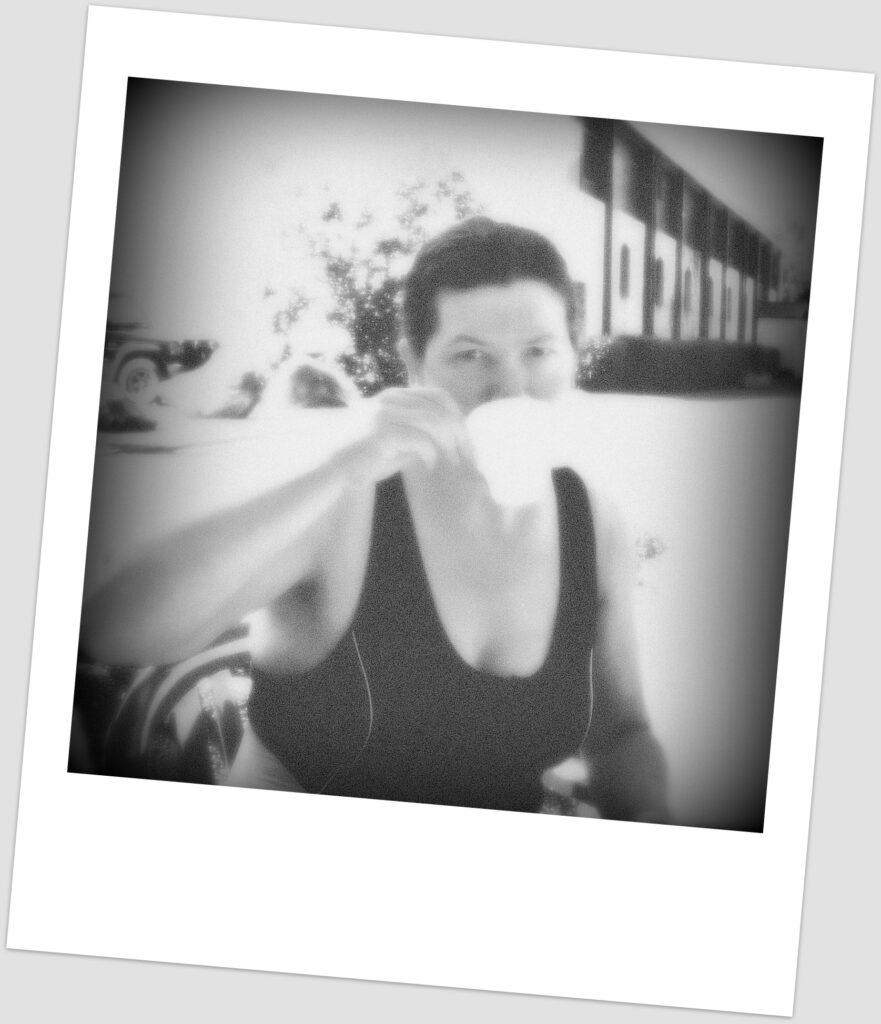
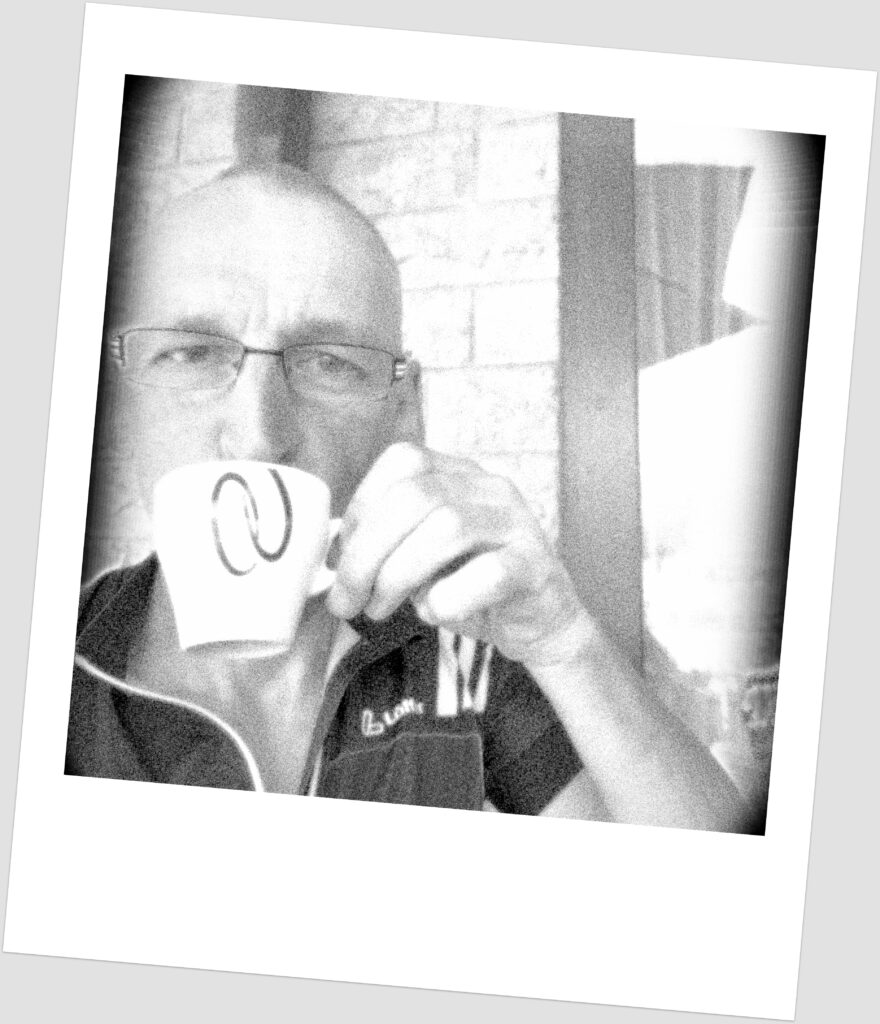

Gerhard Kaučić (*1959), Leiter einer Philosophischen Praxis seit 37 Jahren in Wien ( 1989-2026 ff.)
Demokratie leben ! Demokratie im Werden ! Demokratie leben !

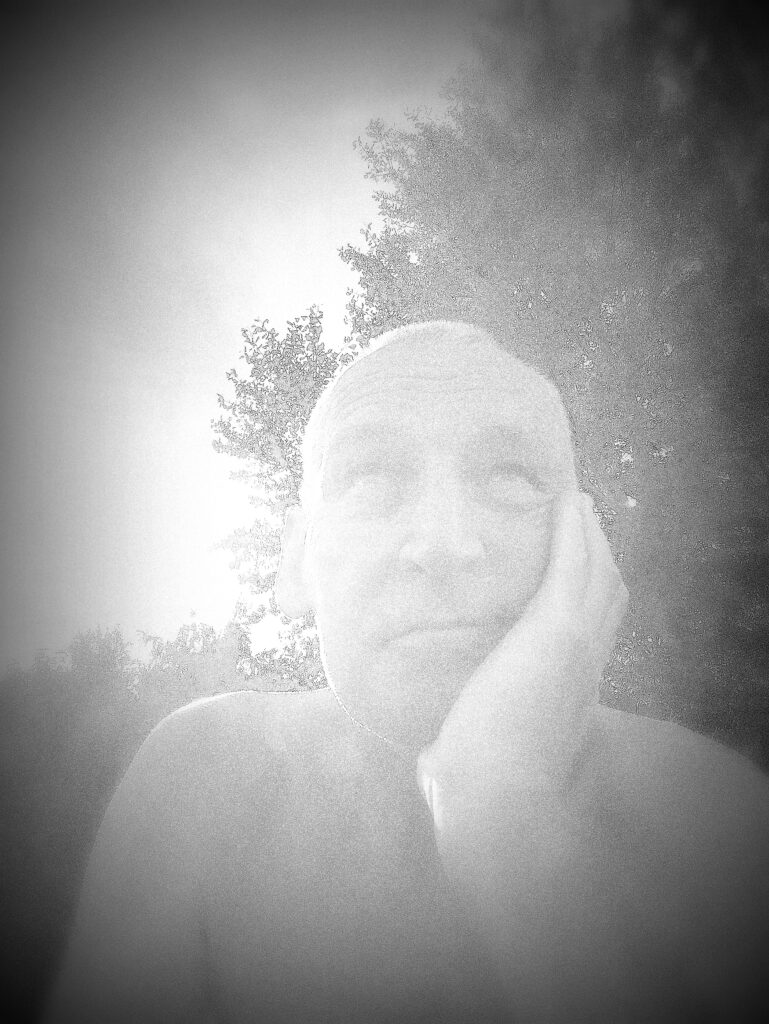
G K, – eines schönen Sommertages früher Abend , – belustigt, erfreut, erstaunt, gelangweilt, Zukunft vor Augen?! …..
G K, – early evening on a beautiful summer day, – amused, delighted, amazed, bored, future ahead?!
Biographisches / Biographie https://www.philosophischepraxiskaucicundhuber.at/biographisches-biographie/
Biographisches, Bio, Vita, Biographie https://disseminationsdjayphilpraxkaucic.blogspot.com/2017/09/biographisches-bio-vita-biographie.html?m=1
Lebenslauf Biographie Gegenwartsphilosophie Philosophische Praxis https://disseminationsdjayphilpraxkaucic.blogspot.com/2017/10/lebenslauf-biographie.html?m=1
https://disseminationsdjayphilpraxkaucic.blogspot.com/2017/10/lebenslauf-biographie.html
Lebenswerk 07.10.2025 Url/Link: https://www.philosophischepraxiskaucicundhuber.at/werk-und-leben/
To contact me/us use only this email: g.kaucic[at]chello.at
GESPRÄCHE sind EREIGNISSE als TEXT
Werk und Leben
LEBENSWERK
Noch mehr zur Vita und zum Werk der Philosophin und Schriftstellerin Anna Lydia Huber (67, 2026, Philosophische Praxis seit 2009) und des Philosophen und Schriftstellers Gerhard Kaučić (67, 2026, Philosophische Praxis seit 1989) in den hier am Ende verlinkten Postings.
Künstliche Intelligenz 09.07.2025 Url/Link:
Künstliche Intelligenz,- eine Ergänzung 25.09.2025 Url/Link:
To contact us use only this email: g.kaucic[at]chello.at
[[ Gerhard Kaučić / Djay PhilPrax (born 1959), Anna Lydia Huber (born 1959), Philosophers, –
Writers, Feminists, Freeriders, Grammatological Philosophical Practice (GPP), Vienna, PP since 1989, Dr. phil., MSc, —
( Copyright, Bildrechte, Urheberrecht, rights to images, copyright, Picture rights, Image Rights, Copyright, –
Texte, Fotos © Anna Lydia Huber, Gerhard Kaučić ) ]]
Zum besseren Verständnis und zur beginnenden Einübung in unsere philosophische Praxis lesen Sie bitte unsere Charakterisierung der Grammatologischen Philosophischen Praxis (GPP GK & ALH, Deutsch/Englisch), –
Url/Link: https://www.philosophischepraxiskaucicundhuber.at/charakterisierung/
For a better understanding and to begin practicing our philosophical approach, please read our characterization of Grammatological Philosophical Practice. (GPP GK & ALH, German/English), –
Url/Link: https://www.philosophischepraxiskaucicundhuber.at/charakterisierung/
P.s.:
Literaturliste gemäß Google Scholar bis Datum 29.01.2026: Url/Link:
https://disseminationsdjayphilpraxkaucic.blogspot.com/2025/03/latest-news-information.html?m=1

